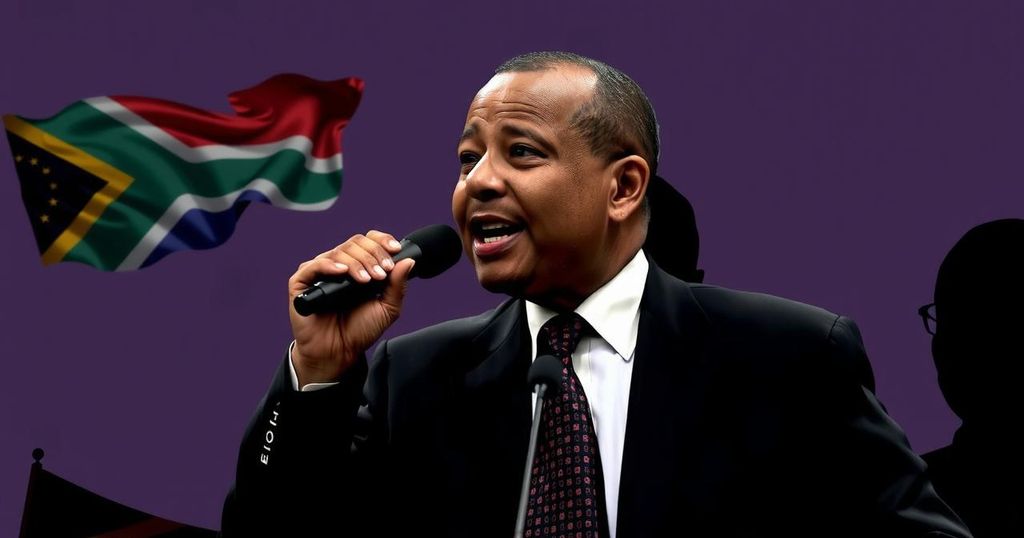The Eswatini opposition leader, Mlungisi Makhanya, has been poisoned in what his party claims is an assassination attempt. Currently in a critical condition in a Pretoria hospital, Makhanya has fled Eswatini due to threats against his life amid a violent crackdown on democracy activists. Despite government denials, Pudemo calls for international support and plans to continue protests advocating for multi-party elections in Eswatini’s absolute monarchy.
Mlungisi Makhanya, the principal opposition leader of Eswatini, has been reportedly poisoned in an assassination attempt while residing in South Africa, as disclosed by his political party, the People’s United Democratic Movement (Pudemo). The 46-year-old Makhanya, who has been in exile for two years due to threats on his life following a brutal crackdown on pro-democracy advocates in his home country, is currently hospitalized in critical yet stable condition. The party’s spokesperson stated, “Our president has been stabilised but he is still in a critical condition.” Makhanya’s poisoning incident allegedly occurred early on a Tuesday morning at his residence in Pretoria, where he informed police and medical staff that he had been poisoned and robbed. It has been reported that an extremely toxic pesticide was used in this act, which Pudemo officials have termed a clear assassination attempt. In response, Eswatini government spokesman Alpheous Nxumalo denied any involvement, asserting that the government adheres to ethical law enforcement standards and does not engage in the fatal targeting of suspects. The necessity of protecting Makhanya and his family has been voiced by Pudemo, which has called for international support and drew attention to the broader context of political repression in Eswatini, traditionally known as Swaziland. Despite threats, Pudemo remains resolute in plans for upcoming protests advocating for democratic reforms in a nation where political parties are essentially outlawed despite a semblance of electoral procedures. The recent violent history of the political struggle in Eswatini looms large, where, in the past, pro-democracy protests led to multiple fatalities, according to various human rights organizations. Makhanya’s plight underscores the precarious state of opposition within an absolute monarchy where dissent is consistently met with hostility and violence.
Eswatini, formerly known as Swaziland, is one of the last absolute monarchies in Africa, ruled by King Mswati III since 1986. The country’s political landscape has seen severe restrictions on political activities and dissent, particularly against those advocating for democratic reforms. The People’s United Democratic Movement (Pudemo) represents a significant voice for opposition against the monarchical rule yet faces systematic repression. Mlungisi Makhanya, the leader of Pudemo, has been vocal in challenging the government’s human rights abuses and has faced various threats, leading to his exile in South Africa. Recent calls for protests reflect ongoing tensions over the lack of political freedom, posing risks not only to leaders like Makhanya but also to broader civil society advocating for change.
The attempted poisoning of Mlungisi Makhanya serves as a stark reminder of the dangers faced by opposition leaders in Eswatini. As pro-democracy movements within the country gain momentum, the government’s tactics of suppression expose the urgent need for international attention and support for the plight of activists. The incident highlights broader themes of political repression, human rights abuses, and the struggle for democratic governance in an absolutist regime, emphasizing the critical situation that remains as Pudemo insists on proceeding with planned protests.
Original Source: www.bbc.co.uk







